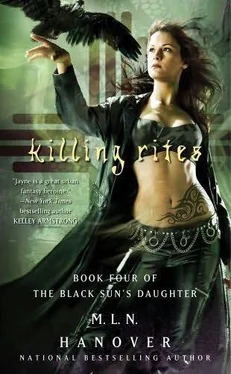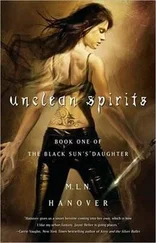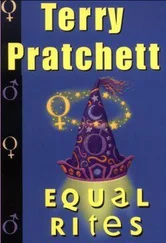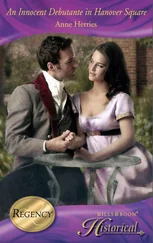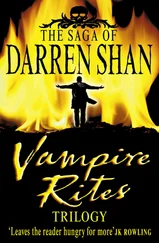“Hey. You know I’m standing right here,” I said. Chapin didn’t miss a beat.
“This afternoon, we perform de Tonquedec’s exercises with her. Once we have a clearer sense of the beast, I will permit a rest. If possible, I would like to force it to reveal its name by the day’s end.”
“Okay,” I said, “when you say ‘force it to reveal its name,’ how exactly does that go? Because it sounds a little ominous.”
“It will be in our control,” Miguel said, shaking his head. “There is no danger there, though it may be unpleasant, especially if the beast has hidden itself deep within you. To bring it out by our will instead of its own may cause some discomfort.”
I must not have looked reassured, because Carsey cleared his throat.
“Worse than a tummy bug, better than a sick drunk,” he said. “Have you ever been sick drunk?”
“No, but I had a friend in college,” I said. “Held her hair. That kind of thing.”
“Well, better than that,” he said with a smile. “The ugly part’s not until later. That’s worse than a sick drunk.”
I nodded. Carsey leaned over and tapped my forearm lightly with the tips of his fingers. For the first time since Chicago, I didn’t just half want Chogyi Jake there; I’d have sacrificed a finger if he’d appeared just then. He’d have been able to tell me just how bad this was about to be and make it all seem possible. Instead, I felt like a child with everyone saying her shots wouldn’t hurt. You know. Much.
“All right,” I said, trying to sound braver than I felt. “Let’s see what we’re working with.”
When I was growing up, there were two kinds of magic: prayer and witchcraft.
Prayer, we did in church or at the dinner table. We did it at youth group; we did it before class; we did it last thing before bed. The idea that things could be the way I wanted if I just asked hard enough, if I just wanted hard enough, was the bedrock of my childhood. And so when my grandmother got cancer, I prayed like my heart was on fire. I knelt by my bed for what felt like hours, hands clenched, asking God to make my Nanna better. At her funeral, the priest said that Nanna had gone to a better place and my mother nodded. I spent the rest of the service embarrassed for having been selfish when I’d prayed that she get well.
Witchcraft was something else. It was the tool of evil. Satan’s hand in the world. That didn’t stop a few of the kids from making up hex charms. Especially in middle school, girls would sometimes find little drawings stuffed into their lockers made up of what we thought of as occult scratching—yin-yangs, pentagrams, inverted crosses—with their names inscribed. Once a girl in my Language Arts class—Tracey McCort, I think her name was—threw such a violent fit about one that we all had to go see the school counselor.
Before I walked into my uncle Eric’s secret apartment and found a desiccated corpse smoking cigarettes, cooking omelets, and cracking wise, the one consistent thing I knew about magic was this: it didn’t work.
It turned out I’d been wrong about that. Chogyi Jake, Ex, and Aubrey had taught me a little about how to find my qi, the energy that drove real magic. Right now, I could use it to see through illusions or make someone follow a command, if only a simple one and only for a second. Ex could use it to change what he looked like, if you didn’t look hard. Kim could damp down other magic. We could do parlor tricks.
Riders had access to much more power than any human being. They could fly or change bodies or toss cars around with their hands. Just a normal person trying to face down a rider would need a lot of prep work or a lot of experience or a lot of friends. Sometimes, all three.
The ritual Chapin ran us through that afternoon—de Tonquedec’s exercises—was one of those preparatory moments. After a lunch of tunandwiches and stale potato chips, I sat on the floor at the center of the ritual space, and the men stood around me. My job, as Chapin explained it to me, was to draw myself into a place just over my heart, to retract from my body as much as I could, and focus everything into a very small place at the center of my body. I’d stay there for about an hour, then shift myself into the place just behind my eyes where I went when the rider took over. And then hang out there for an hour.
Two hours sitting on an old cushion while six men stood around me muttering in Latin. I figured it would be a little surreal and uncomfortable, a little boring and a lot goofy. And it was, for about the first ten minutes.
After that, it was some of the hardest work I’d ever done.
My eyes were closed, and in the darkness behind them, I tried to hold myself together. Intangible things brushed against the tiny, compacted version of me. I felt Ex among them, his furnace of a mind comforting only because it was familiar. Each little contact was an echo of a foreign mind like someone in the hallway coughing.
And then, with no trigger I could fathom, I was afraid. Deeply afraid. I was trapped in a haunted house with no way out, and there was something there with me. Something that hissed like an old propane lantern and smelled like burnt cheese. My friends were going to die, and I was going to kill them, and more than anything—more than breath—I wanted not to. I just wanted not to hurt anyone. I felt something happening miles overhead and was disturbed to realize it was me, crying. The sensation I felt so far above me was the thickness of sorrow in my throat. I had the powerful sense that my hands were bleeding. Not my real hands, out there impossibly far away from me, but these small, invisible ones. They were bleeding because I’d used the palms like hammers, driving in the nails. I was killing him. I was killing him again.
Something in my belly moved.
Something that wasn’t me.
I came up gasping. Around me, the six priests stood in pairs: Carsey and Tamblen, Tomás and Miguel, Chapin and Ex.
“Bathroom,” I said. “I need the bathroom.”
“You have to hold on a little longer,” Ex said. “You can—”
“Let her go,” Chapin said. “We’ve seen enough for now.”
The bathroom was tiny. I could put my hands out, pressing palms against both walls at once. The light came from a tiny window, no more than four inches square, outlined in deep-blue tile. The toilet was undersized, and it ran a little. I stood until I was sure I wouldn’t pass out, then slid down, my back against the wall, and cried for a while. I was shaking badly, and I felt light-headed. I briefly reconsidered vomiting, but decided against it. When I rose to my feet again, I didn’t know how long I’d been in there. Five minutes or five hours both seemed equally plausible. I washed my face in the tiny, mineral-streaked sink and looked up into the mirror. In the dim, I looked older. Worn-out. My eyes were puffy and red. My hair was frizzed out like a black cloud. My skin was pallid. There were raw, rashy-looking spots at the corners of my nose.
My right hand rose up without my knowing it was going to. My fingertips touched the mirror gently, caressing the girl in the glass. I shook my head and stepped back. When I went out, the priests were sitting around the big table where Dolores and her family had been before. Their conversation went quiet as I stepped in, and Tomás stood up. Someone had old-school ideas about etiquette. Outside, the light was slanting down from the west with the red-gold glow of evening. It was probably half past four. The dark came so early .
“Hey,” I said. “Sorry about that. Hit a rough spot.”
“It is fine,” Father Chapin said.
“Do we—” I started, but the question stuck in my throat. I actually had to swallow twice before I could talk again. “Do we dive back in?”
Читать дальше
